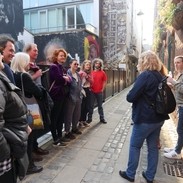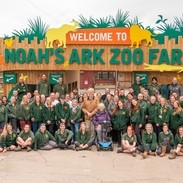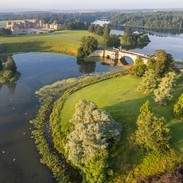Identifying the Action
Covering the ground
DMPs will be stronger if they address, and coordinate, a full range of action areas that are relevant to the visitor economy. Specific action areas may include:
- Partnership structures and communication, including a clear role for the LVEP in coordinating and leading the delivery of the DMP;
- Community engagement, including advocacy;
- Business Support, including training and advice;
- Product quality and development, including innovation and investment promotion;
- Infrastructure investment and improvements, including their accessibility;
- Place-making – improvements to the public realm, etc;
- Sense of place – e.g. use of local produce and local stories;
- Arts, culture and heritage – access, interpretation, promotion;
- Strategy related to housing and short-term lets;
- Skills strategy including staffing and career development;
- Attracting, planning and managing events, including business events;
- Destination branding and awareness-raising;
- Tactical marketing, including relationships and engagement with others;
- Information service, including signing and innovative approaches;
- Visitor transport and access;
- Environmental management and conservation;
- Visitor safety and security;
- Research and knowledge gathering.
Again, this list is indicative, not definitive. Destinations may need to prioritise, given resourcing implications.
Identifying and defining actions
Ideas and concepts for specific actions will emerge throughout the DMP development process.
- Current actions should be included if it is considered that they are important and contributing to the strategic objectives. The DMP should not be just about new actions
- Some actions will be in areas not normally directly associated with the visitor economy but very important to it.
Action plans should identify for each action:
- The timing for the action
- The level of importance
- Indicative cost and resources required (this does not necessarily have to be additional costs)
- Responsible body and others involved
- Funding source, if possible
Prioritisation is important. It can be helpful for longer term action plans to indicate early actions and quick wins. However, there is a difference in prioritisation by time and by importance – these may not always be the same. Some actions may not be initially funded. The DMP can provide a basis for seeking funding for their implementation. It can be used as evidence and justification of the need for funding.
Allocating roles and securing commitment
A key feature of actions identified in a DMP is that they will need to be carried out by a range of different stakeholder bodies. For this reason it is important that action plans are developed in consultation and are agreed by the stakeholders.
Having the LVEP as the single lead body to take responsibility for the overall plan is important, to avoid confusion. However, many actions are likely to involve a number of stakeholders. It is important that implementing bodies are committed to the actions identified.
The table below indicates some of the different kinds of body to involve in actions and the roles they may be best placed to play.
Some actions may need to involve organisations outside the destination, including those in neighbouring areas or at a higher geographic level, including national agencies.
Local Organisations
ORGANISATION | ROLES |
Destination Development Partnership (DDP) |
|
LVEP (or the DMO where there is no LVEP or the plan is for a smaller destination) |
|
Local Authority (Combined Authority, County, District or Unitary) / LEP where appropriate |
|
Business Improvement Districts (BIDs) |
|
Protected Area Authority (National Park, AONB) |
|
Parish / Community Council/ neighbourhood group |
|
Individual tourism businesses |
|
Local landowners |
|
Local civic societies, disability action groups, heritage groups, arts & culture groups, other local/ voluntary bodies |
|
National Organisations
| ORGANISATION | ROLES |
VisitEngland / VisitBritain |
|
Other national public agencies and NGOs in heritage, arts, sport, environment, places |
|
Tourism Associations or other trade groups (may be local or national bodies) |
|
Research and training bodies (may be local or national bodies) |
|







